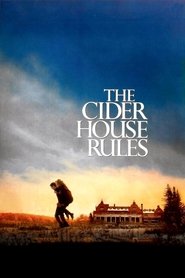I lost faith in this movie the moment it showed Paul Rudd handing out chocolate to orphaned children in after stepping out of a luxury American automobile a well-pressed G.I. dress uniform.
'Oscar bait' is a bit of an overused pejorative at this point, but would this film have existed in precisely this way without the Academy Awards? For all its faults, John Irving's original novel had a winning style and a matter-of-fact tone that had a frankness about gynaecology, abortion and post-natal care that was arresting for a mainstream (and popular) book published in 1985. By contrast, Lasse Hallström's 1999 film sanitises all this behind the catch-all excuse of "well, a film can't cover everything", and effectively creates a kind of 2-hour movie adaptation of "Safe, Legal and Rare."
That's perhaps not the worst of its problems. Homer credibly claims that he has "never seen a lobster before", so it seems safe to assume that, given the racial and class coding of Dr Larch's orphanage, he has never seen a Black person before either. So mere moments later in the film, when Homer finds himself bunking up in a flimsy, freezing shed with his fellow countrymen from the south, Homer and the film around him start to take on the fraudulently naive quality of Forrest Gump (1994). Indeed, just like this spiritual predecessor, The Cider House Rules is almost embarrassingly in love with an idea of America that likely never existed, and this adaptation paints in very loose strokes some of the racial inequalities inherent in what the film (rather provocatively) labels "migrants". (Why are there no jobs in Florida that might entice them to drive all the way up New England? And how did Wally and Candy afford that fancy car? Oh, never mind.)
John Irving trades in a lot of obvious symbolism at times, but he would never be so base to evoke the oboe part of Antonín Dvořák's New World symphony in his metaphorical soundtrack. And the film's overly paternalistic view of obstetric medicine started to grate with me after a while: the shouts and screams in childbirth (or an abortion) is shown as something quirky and idiosyncratic that 'womenfolk' do, and can be safely indulged by the chummy, affable men. Indeed, after finishing this film, I picked up a magazine and randomly learnt that 25,000 women who give birth in the UK (about 4%) are so distressed that they meet the diagnostic criteria for post-traumatic stress disorder — thus making giving birth one of the biggest causes of PTSD in the UK. That's totally cool with me, of course, just as long Hallström and producer Harvey Weinstein got to smirk about it on stage.
Synopsis: Homer is an orphan who was never adopted, becoming the favorite of orphanage director Dr. Larch. Dr. Larch imparts his full medical knowledge on Homer, who becomes a skilled, albeit unlicensed, physician. But Homer yearns for a self-chosen life outside the orphanage. What will Homer learn about life and love in the cider house? What of the destiny that Dr. Larch has planned for him?

